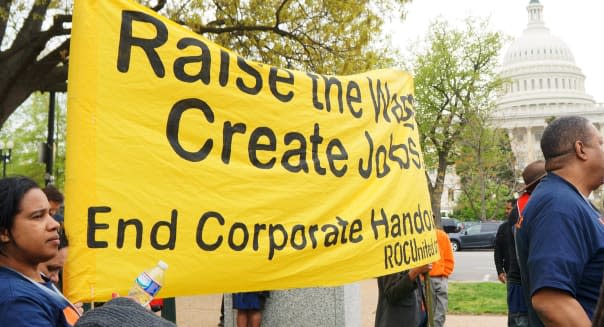The Truth About Corporate America's Biggest Tax Dodgers

A few new research reports are asking if some of America's biggest corporations are also some of our biggest tax dodgers.
Last month, U.S. Public Interest Research Group released a report accusing U.S. corporations such as General Electric (GE) and Pfizer (PFE) of using offshore tax havens to evade $184 billion in income taxes last year. According to U.S. PIRG, General Electric has been particularly flagrant in its use of tax havens to dodge U.S. taxes, racking up an average tax rate of negative 11 percent (meaning we, the tax-paying taxpayers, actually paid GE a refund) from 2008 to 2012, "despite being profitable all of those years." Without disputing the facts of the findings, it's worth pointing out that U.S. PIRG isn't accusing GE -- or anyone else, really -- of doing anything illegal. (Just maybe a wee bit immoral.) Still, if a company of as high a profile as GE can get away with this kind of legalized tax evasion, it's worth asking just how widespread this practice is, and how often companies get away with it?
WalletHub Attempts an Answer
Fortunately, a separate study -- this one from online financial community WalletHub -- recently did some digging and attempted to answer this question.
%VIRTUAL-pullquote-Mining 2012 annual report data for the S&P 100, WalletHub came to several conclusions that may surprise you.%Mining 2012 annual report data "on company profits, withholding practices and tax payments on the state, federal and international levels" among the nation's 100 biggest companies -- the S&P 100 -- WalletHub came to several conclusions that may surprise you.
For instance, in taking U.S. corporations to task for overuse of offshore tax havens, it seems U.S. PIRG hit the nail on the head. WalletHub's report notes that by doing business internationally and taking advantage of disparities in tax rates, S&P 100 companies are generally able to pay about 30 percent lower tax rates on their international taxes than on their U.S. taxes.
Certain tech companies are especially adept at this game, with Apple (AAPL) and Google (GOOG), for example, working the international tax system to pay up to 80 percent lower taxes on profits earned abroad than those profits would be taxed at here in the U.S.
Of course, the fact that U.S. companies work the system to shield their profits from taxes whenever possible isn't news. And while tech companies seem to play this game better than most, it's not just the techs who are winning the game of tax dodgeball.
In 2012, The New York Times reported that the average American taxpayer pays about 24.7 percent of income annually for federal, state, and local income taxes. Yet WalletHub reports that no fewer than 28 companies in the S&P 100 paid less than 24.7 percent in overall taxes in 2012. A further three companies paid no taxes at all that year, due to their earning no taxable profits. Six more companies received tax refunds.
In other words, as a percentage of income at least, more than one American company in three is paying a lower tax rate than the average mom-and-pop taxpayer pays.
The Big Surprise
So far, so bad. But here's the good news: Just as with individual taxpayers, corporate taxpayers' tax rates tend to fluctuate from year to year. Sometimes, they get off scot-free. Other years, they take some pretty big tax hits. But overall and over time, it turns out that corporations really do appear to be paying their fair share.
%VIRTUAL-article-sponsoredlinks%Don't believe it? Focusing on just one notable example, and a perpetual bugaboo of the "corporations are tax cheats" theorists, it turns out that America's oil companies are actually some of the most generous taxpayers on the planet.
Five of the top 10 companies cited in WalletHub's survey as paying the highest taxes as a percentage of their profits were oil companies. Namely, Exxon Mobil (XOM), Chevron (CVX), Occidental Petroleum (OXY), ConocoPhillips (COP) and Apache (APA). Exxon paid a 39.4 percent effective tax rate in 2012 -- and the others all paid 40 percent and up. This was pretty good news for U.S. taxpayers as a whole, because, as it turns out, two of these companies were Nos. 1 and 3 for the most profitable companies in the S&P 100 that year. Exxon Mobil earned about $44.9 billion in 2012, and Chevron earned more than $26.2 billion.
The Upshot
When you get right down to it, though, while some corporations win at the tax minimization game, and others, like the oil companies, don't, on the whole it turns out that America's biggest companies really are paying their fair share.
Between federal, state, local, and international taxes, the average percentage of corporate profits paid out as taxes by America's top 100 companies was 26.9 percent. That's more than 2 full percentage points more than the rest of us pay.
Motley Fool contributor Rich Smith owns shares of Apple. The Motley Fool recommends and owns Apple and Google (A and C shares), and owns shares of General Electric.

